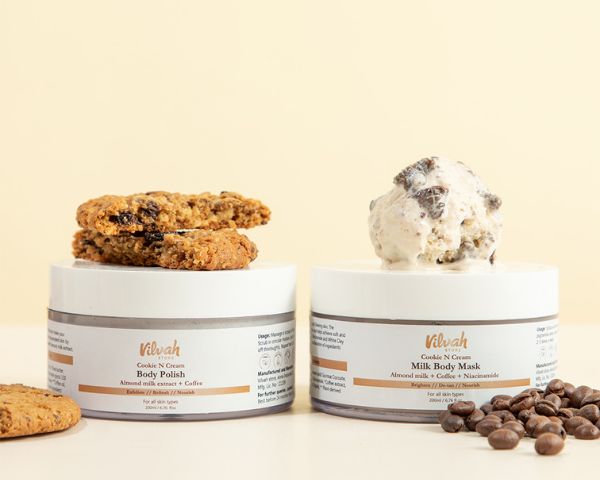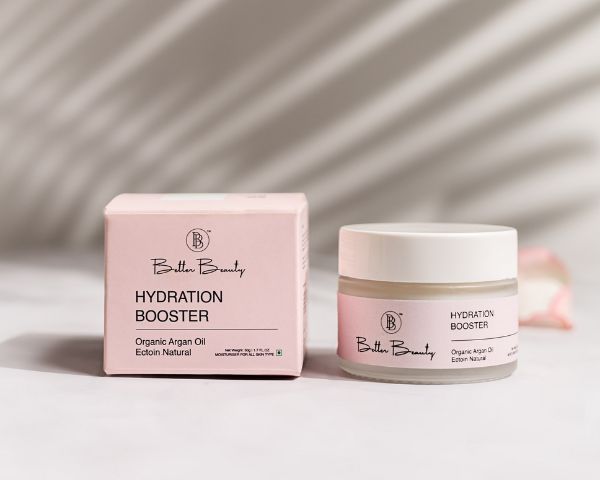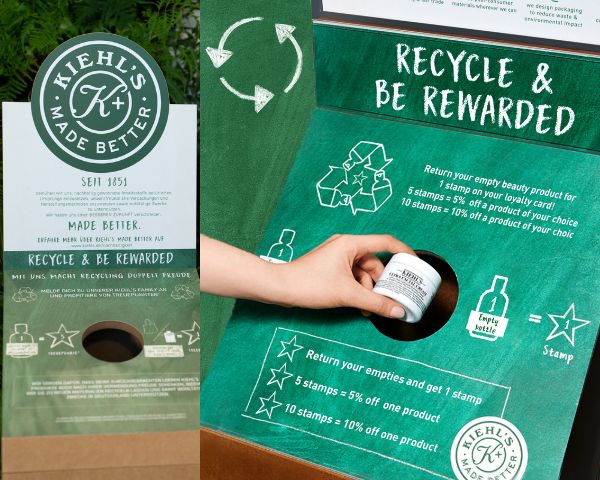Business of Clean Beauty: Eco-conscious Brands Look To Reduce Packaging Waste
As consumers take note of the beauty industry’s massive carbon footprint, brands big and small are rolling up their sleeves by working towards minimal waste and recyclable packaging
Clean, cruelty-free, sustainable. These words are no longer mere marketing jargon in the beauty industry but are central to the ethos of many global brands that understand the consequences of decades of decisions resulting in global warming and climate change. The multi-billion-dollar beauty industry is a significant contributor to environmental damage that plagues our planet; reports peg the number of packaging units produced annually by the beauty industry at 150 billion, driven primarily by marketing necessities. It is no wonder that plastic is the most significant component in the lot and is rarely fully recyclable.
So what can brands do? The first step is to turn consternation into real action. According to a research by Statista, the clean beauty industry is projected to reach $54 billion by 2027, propelled by a shift in perspectives over the years to chemical-free, sustainable beauty products. Additionally, consumers support clean beauty brands which are working towards a waste-free policy at their core. It is no wonder that many Indian companies are aiming to be more conscious of their carbon footprint, taking small steps in the right direction.
The Road To Clean Beauty
 asa is a clean beauty brand founded by Asha and Sukriti Jindal Khaitan
asa is a clean beauty brand founded by Asha and Sukriti Jindal Khaitan
Clean beauty is synonymous with cosmetics and skincare products free from harmful chemicals. Asha Jindal Khaitan and her daughter-in-law Sukriti Jindal Khaitan, founders of asa beauty, share the ethos behind their clean beauty brand, launched in 2020. “asa came from a need for more trustworthy local brands for skincare and makeup in India. We wanted to cater to a growing conscious consumer market through a sustainable, luxury brand that offered clean beauty solutions while adhering to international aesthetics and quality standards,” Sukriti shares. asa’s products are made with performance-driven natural product formulations and customised for Indian skin tones.
 asa offers refills for all their products
asa offers refills for all their products
But in a marketing-fuelled drive for an Instagram-worthy look, the bells and whistles of packaging play an intrinsic role in the allure for a consumer. So how do brands carve a sustainable middle path in this age of purposeful beauty? The answer is sustainable packaging. At asa, the packaging is exquisitely crafted using aluminium, an endlessly recyclable material; they also offer refills, prompting users to replenish their products without creating wastage. “We have created packaging from scratch in the cosmetic space, and this endeavour is unique to asa. All our pieces are custom-made. Additionally, our focus is on refilling and reusing. The 3-step refillable system makes it easy to adopt a conscious lifestyle without compromising the efficacy or quality of the product,” Asha adds.
Is Incorporating Sustainable Packaging Easy?
It rarely is, as most brands expressed. “While demand is shifting towards sustainability, consumers still expect an equally good experience as what they’ve had in the past – and this represents a big challenge. Packaging is a critical part of brand experience, and identifying a sustainable yet recognisable and unique packaging design can be a challenge and an opportunity in itself,” expresses Priyanka Sachdeva, Head of Marketing at Kiehl’s India.
 Vilvah uses recyclable products like aluminium and glass in its packaging
Vilvah uses recyclable products like aluminium and glass in its packaging
Vilvah Store, a sustainable skincare brand, faced similar roadblocks while incorporating sustainable packaging. “When we decided to use recyclable packaging, it looked simple. But we understood the difficulty in sourcing this packaging, the additional cost we were incurring and the difficulty in recycling. The entire process has to be sustainable and not only the product packaging,” says Kruthika Kumaran, co-founder of Vilvah. The brand uses recyclable products like aluminium and glass and follows practices such as recycling wastewater and using it inside its facility while operating on solar power.
 Better Beauty is completely plastic-neutral and uses recyclable packaging for their products
Better Beauty is completely plastic-neutral and uses recyclable packaging for their products
Packaging supplies also make up a big chunk of plastic used in beauty industry. Think bubble wraps, plastic covers and single-use containers. Therefore, eliminating plastic was also a key focus for Better Beauty, a clean beauty brand by Anita Hassanandani. “In the initial stages of eco-friendly packaging, product leakage and lack of multiple designs were a few setbacks. With the advancement of this industry, many of these issues are not prevalent now. Leakage in shipments still occurs due to mishandling in logistics, but even that is overcome with the correct usage of paper-based packaging supplies. It’s still easier to source innovative design focussed packaging in non-sustainable materials; however, with the larger goal in clear sight, we focus on materials that look good, if not incredible, and yet are effective. We are completely plastic-neutral and use recyclable packaging for all our products,” expresses Naina Ruhail, co-founder of Better Beauty.
Sustainability and Customer Incentives
 Kiehl’s India has a Recycle & Be Rewarded Program for its customers
Kiehl’s India has a Recycle & Be Rewarded Program for its customers
While sustainable beauty brands are going the extra mile to lower their carbon footprint, ensuring the last-mile coverage for consumers’ interest in recycling is also a mammoth task. To this end, Kiehl’s India, which had also launched a store made with sustainable architecture in Mumbai’s Jio World Drive, has devised a program to encourage customers to begin their journey towards sustainability. “All Kiehl’s stores have a recycle box where customers can place their empty product containers as part of the Recycle & Be Rewarded Program. They are rewarded for taking this step towards a better future and earn points that can later be accumulated and redeemed for Kiehl’s products or merchandise,” Sachdeva adds.
Vilvah also has a recycling program called #BringItToVilvah, where they help customers recycle empty jars and bottles. At Better Beauty, repeat buyers can choose whether to club orders or avoid certain packaging goodies to ensure minimal wastage.
View this post on Instagram
Additionally, another key aspect is consumer education, towards which asa works. “We know that consumers today seek the right information about sustainability. To that end, we have built a glossary on our website, where we try to educate our users about the ingredients we use and the ones that brands should not use. People are looking to be educated, and I believe the onus is on us to ensure that the right idea is disseminated from the top of the funnel down to the bottom,” Sukriti opines.







 Beauty brands in India are working to reduce packaging waste
Beauty brands in India are working to reduce packaging waste



